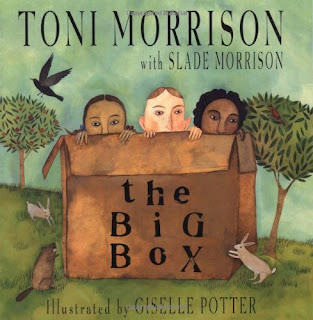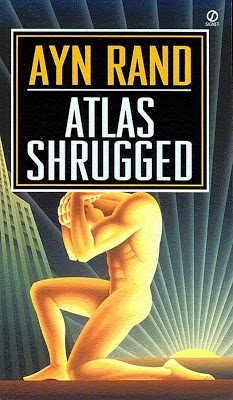Too Much Freedom
Politics/Social Commentary
April 2013
I've been thinking about freedom a lot these days, mostly due to a strange constellation of recent events. First, this semester I'm sitting in on an undergraduate course called "Religion, Self, and Society," where we read John Locke, Jean-Jacques Rousseau, and John Stuart Mill. The course ends with a look at the Supreme Court and its involvement with the Mormons over plural marriage. It's a fascinating case of the government drawing lines in the sand (where all lines are all drawn) around just how free the practice of religion really should be.

Second, at a book club meeting the other night, a friend read us a fun little children's book called The Big Box by Toni Morrison. It follows three children who are just a bit too adventurous, who like to color outside of the lines a little too far. To control them, the powers that be place them each inside a big brown box. The story begins thus:
The book follows each child, explaining just what they did to warrant life in the big brown box. It reminds me of what somebody once said about Peter Pan: the story could only have been written by an adult, because only an adult would want to remain a boy forever; children want to grow up big and strong like their mummies and daddies. The Big Box pines for the lost freedom of childhood and laments the adults who try and make their own kids grow up too fast, with hands and sneakers that are too clean. Using the seagulls and beavers juxtaposed with the children's inability to handle their freedom, Morrison claims that the limits we impose on our children are somehow unnatural: i.e. our freedoms to explore, to be unique, to think and believe as we wish, to go against the grain, all belong to us naturally, and this modern world with its rules and regulations stifles our youthful freedom.

My third run-in with freedom has been the latest novel to occupy by nightstand: Atlas Shrugged by Ayn Rand. I ran out of books to read, and this copy of Atlas has been on my shelf probably for fifteen years. I borrowed it from my folks forever-ago and never got around to reading it. The book is an amazing little piece of myth making, and I'll offer a full review of it once it's finished, but for now, it has made me think about freedom and markets. Usually, when economically conservative individuals argue about freedom, they are talking about freedom of contract, the freedom to do business how and with whom they please. But the words "of contract" are never expressed, and freedom to do business turns into just Freedom. It is this same Freedom that some individuals use to persecute the "lazy" poor. After all, under the freedom of contract, everybody has a theoretically equal "opportunity."

Lastly, as you might have guessed, the recent question of gay marriage has directed my thoughts towards various freedoms and the "rights" often associated with them. Whose freedom is impinged or whose rights are violated when two women or two men marry each other, or when they are denied access to marriage? What happens when the rights of one group bump up against the freedoms of another?
Through all of these events and musings, I have come to think that, in our collective life and in the government which represents us there, any appeal to the metaphysical should be off the table. There is no such thing as Freedom, as Human Nature, as Truth, as Right, as Equality, as The People. Our disagreements should be settled pragmatically, with particular interest paid to who wins and who loses and what is lost and what is gained. The rhetoric of Freedom and Rights attempts to wipe away the fingerprints and messy history which cover our humman-made collective life. We pretend that we are upholding some noble Truth, but in reality, we always draw the lines pragmatically. In other words, just who has access to which rights and just who gets to exercise which freedoms are products of an all-too-human process, not delivered wholesale from Above or Within. Self-evidence is a clever façade constructed by certain people for certain ends. We would do ourselves and our children well, I think, to stop talking about Freedom in the public sphere and start talking about consequences: who gets disenfranchised, who has access to what resources, who wins out and at the expense of whom, and what can we do about it? Metaphysics and its ultimate questions are a fine topic for church on Sunday, but on the floor of Congress, in the classroom, and in our pluralist community, let's leave Truth out of it.
